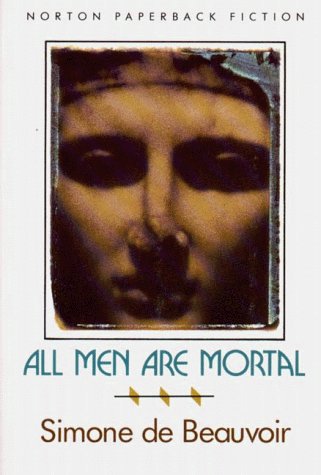
She Came to Stay
Book Description
Two lives intertwine in a dance of desire and betrayal, blurring the lines between love and rivalry. When an enigmatic young woman enters their world, a couple's seemingly perfect relationship begins to unravel, exposing hidden insecurities and fierce passions. Tensions mount as jealousy and ambition clash, forcing each character to confront their deepest fears. With emotional stakes rising like a tidal wave, the fragile balance between friendship and obsession teeters on the edge. Can love survive when the heart is tested by choices that threaten to tear them apart? How far will they go to reclaim their bond?
Quick Book Summary
"She Came to Stay" by Simone de Beauvoir is a seminal existentialist novel set in pre-World War II Paris, exploring the psychological and philosophical turmoil within a complex love triangle. The story centers on Françoise and Pierre, a bohemian couple whose intellectual and romantic partnership is disrupted by the arrival of Xavière, a mysterious and youthful woman. The couple’s initial fascination with Xavière evolves into intense rivalry and jealousy, exposing deep-seated insecurities and unraveling their previously stable relationship. Through shifting power dynamics and emotional confrontations, the novel probes themes of freedom, possession, self-identity, and the struggle for personal autonomy. Beauvoir’s narrative delves deeply into both the intimate and philosophical, asking how love can survive when challenged by desire, ambition, and existential angst.
Summary of Key Ideas
Table of Contents
Power Dynamics and Jealousy in Relationships
Françoise and Pierre represent the archetypal Parisian intellectual couple, enjoying a seemingly harmonious relationship founded on shared ideas and mutual respect. Their world is upended by the arrival of Xavière, a young woman whose naïveté and sensuality captivate both partners. Initially, Françoise welcomes Xavière with protective warmth, seeing her as an intriguing addition to their circle. Pierre, however, is quickly drawn in by Xavière’s allure, setting the stage for emotional turbulence as Xavière’s presence exposes cracks in Françoise and Pierre’s connection.
Existential Freedom and Possession
As the triangular relationship develops, subtle tensions transform into overt rivalry. Françoise oscillates between affection and resentment, feeling both maternal and threatened by Xavière. Pierre’s growing fascination with their guest alienates Françoise, who becomes increasingly jealous and defensive. Beauvoir masterfully depicts how love morphs into competition, each character vying for agency and affection. The shifting dynamics force Françoise to confront insecurities about her place in Pierre’s life and the nature of their bond.
Search for Identity and Authenticity
Underlying the drama are existential questions about freedom, individuality, and possession. Each character grapples with the pull between autonomy and emotional dependence. Françoise struggles with her desire to control Xavière and Pierre, exposing the limitations of personal freedom within relationships. Pierre’s ambivalence about commitment and fidelity underscores the existential tension between liberty and connection. Xavière, for her part, resists being moulded or possessed, asserting her independence in ways both liberating and disruptive.
The Destructive Nature of Obsession
Beauvoir uses the characters’ entanglements to examine broader philosophical and feminist issues. The tangled power plays highlight gendered expectations and societal constraints, particularly in how Françoise, as a woman, negotiates selfhood amid romantic and social pressures. The novel critiques traditional values, exploring how conventional roles can suffocate individual growth and create destructive obsessions.
Gender, Autonomy, and Societal Expectations
Ultimately, "She Came to Stay" is a profound exploration of love’s capacity for both creation and destruction. The climax, characterized by betrayal and irrevocable choices, forces each character to reckon with their desires and limitations. Beauvoir’s existential lens provides a chilling portrait of obsession and alienation, shedding light on the costs of emotional entanglement. The novel stands as both a psychological drama and a philosophical meditation on autonomy, identity, and the precarious balance between freedom and connection.
Download This Summary
Get a free PDF of this summary instantly — no email required.





